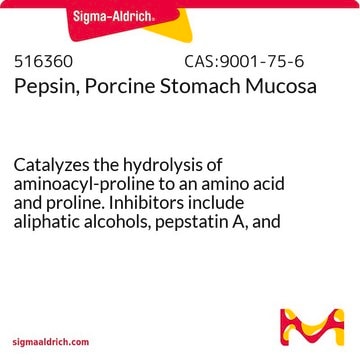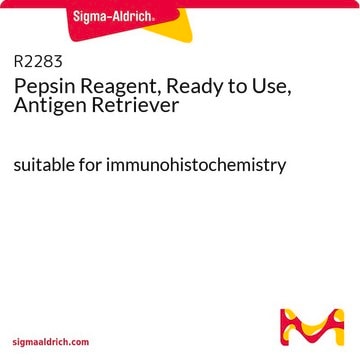77161
Pepsin from porcine gastric mucosa
tested according to Ph. Eur.
Synonym(s):
Pepsini pulvis, Pepsin A, Pepsin from hog stomach
About This Item
Recommended Products
Agency
USP/NF
tested according to Ph. Eur.
form
powder
mol wt
35 kDa
UniProt accession no.
storage temp.
2-8°C
Gene Information
pig ... LOC396892(396892)
Looking for similar products? Visit Product Comparison Guide
Application
Biochem/physiol Actions
Analysis Note
Other Notes
Signal Word
Danger
Hazard Statements
Precautionary Statements
Hazard Classifications
Eye Irrit. 2 - Resp. Sens. 1 - Skin Irrit. 2 - STOT SE 3
Target Organs
Respiratory system
Storage Class Code
11 - Combustible Solids
WGK
WGK 1
Flash Point(F)
Not applicable
Flash Point(C)
Not applicable
Personal Protective Equipment
Certificates of Analysis (COA)
Search for Certificates of Analysis (COA) by entering the products Lot/Batch Number. Lot and Batch Numbers can be found on a product’s label following the words ‘Lot’ or ‘Batch’.
Already Own This Product?
Find documentation for the products that you have recently purchased in the Document Library.
Customers Also Viewed
Our team of scientists has experience in all areas of research including Life Science, Material Science, Chemical Synthesis, Chromatography, Analytical and many others.
Contact Technical Service










